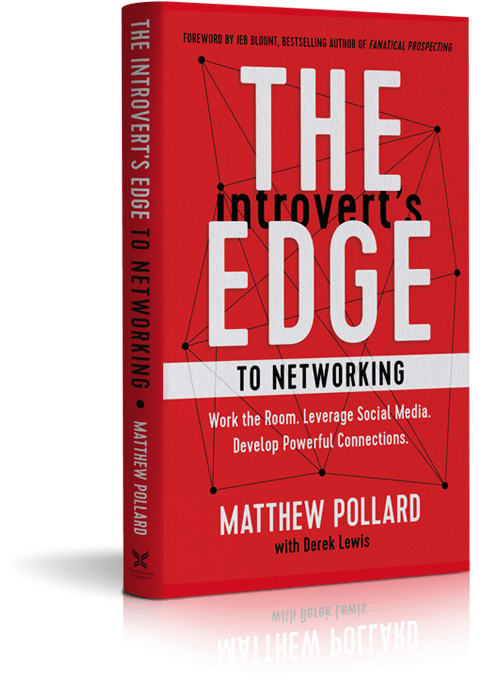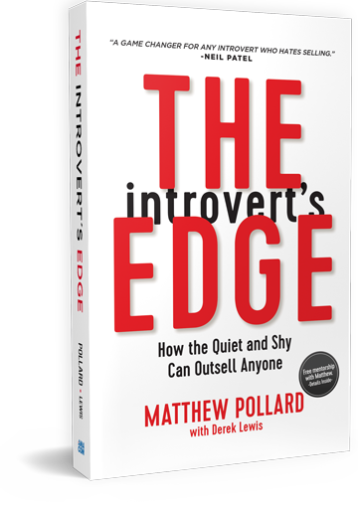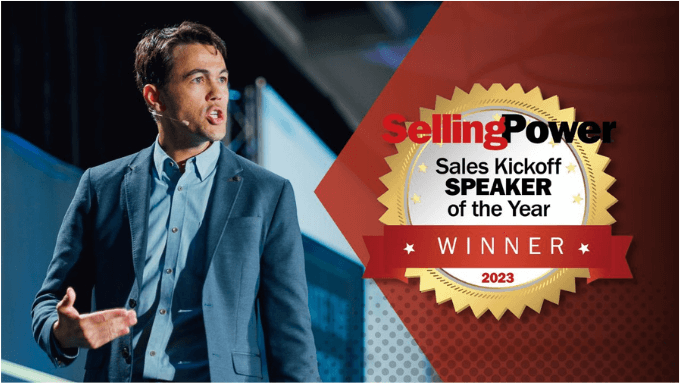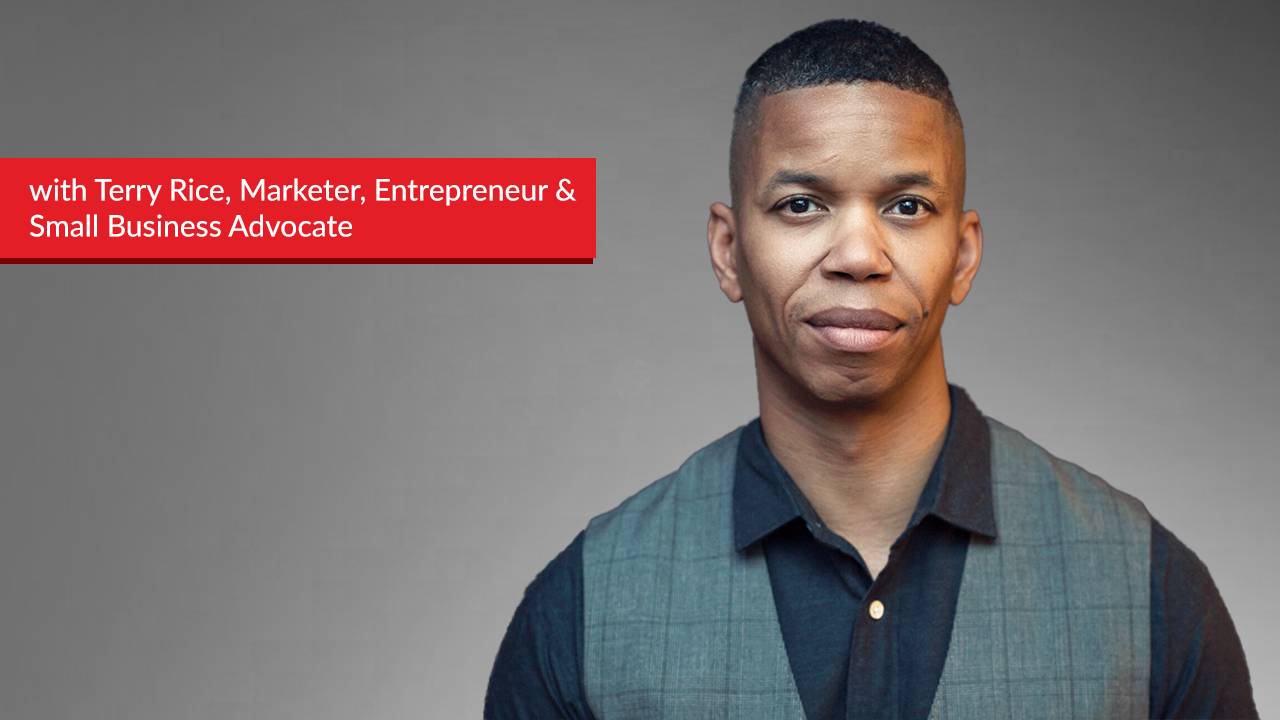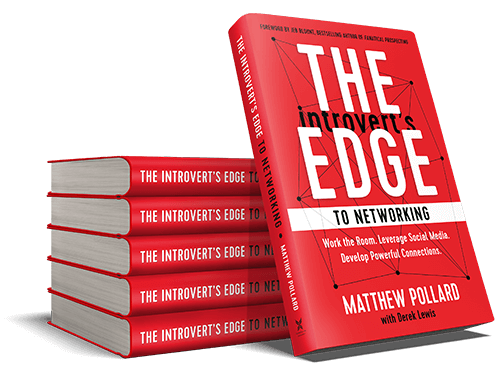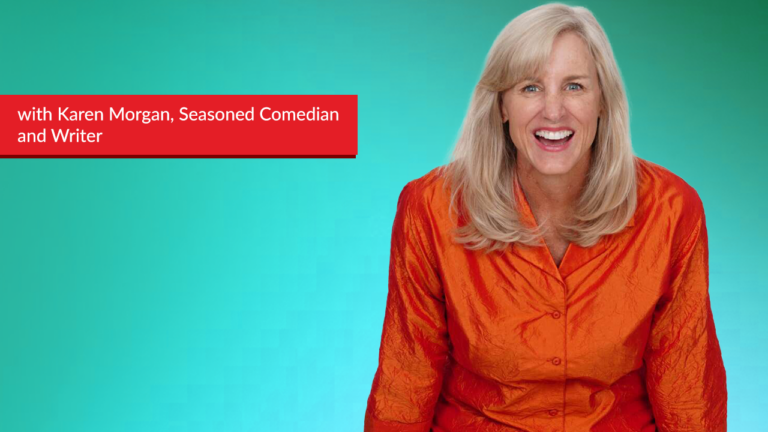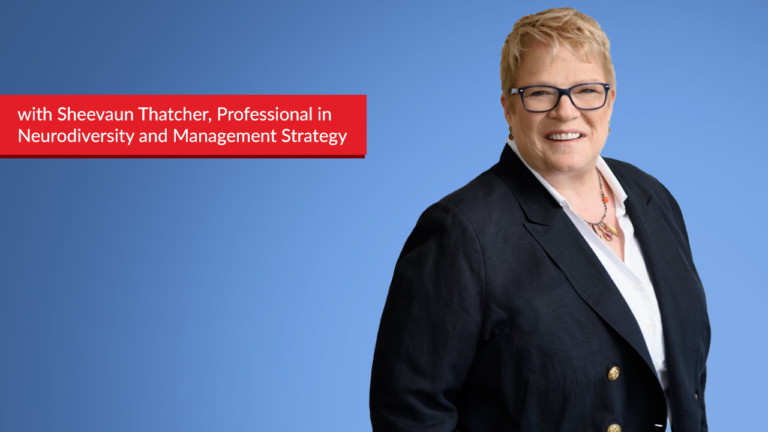Matthew Pollard: Hello, everyone, and welcome back to the Introverts Edge podcast. And I have to admit, I’m ecstatic about inviting my next guest on the show because he, like I have a passion for small business. I mean, this is a guy that has worked for Adobe, he’s worked for Google, and he could have been a corporate career titan for very, very long time.
Yet he made the decision because he’s passionate about small business, a focus on small business. Now, the other thing you’ll love about him is he talks about sales, but he is an outward spoken introvert. And I’m going to tell you this because this is important to me. He’s not someone I had to convince to outwardly say he’s an introvert because he felt like it was a negative.
He thinks it’s a positive, just like I do. He’s got on the bottom of his website. I am an INTP and he is not ashamed to outwardly say that. So I’m ecstatic to welcome my next guest Terry Rice. Terry, welcome to the show mate. Thank you for joining me.
Terry Rice: Yeah, thanks for having me. I’m looking forward to this.
Matthew Pollard: Now as we get into the process of talking about sales, small business, I mean, you’re a salesperson. I’ve seen you speak on stage. You speak confidently. Let’s just call a spade a spade. Most people are going to have a hard time seeing you as an introvert. And so I want to I want to get us past that milestone first.
Can you share me a little bit about your past? Like, have you always known you’re an introvert? Did you discover it? Did you see it as a negative before, perhaps a positive? Like, take me through that journey?
Terry Rice: It’s interesting because throughout high school and even college, I was I was popular. I just kind of put it out there. So you get a lot of attention for that. But I would realize that after a while I just didn’t want the attention. Like it was cool at first, You know, like you walk into a bar, everyone’s like, Hey, Terry’s here.
But after a while, like, I would look for a corner to hide in. So it was an interesting spot to exist in because you’re getting a lot of attention, which a lot people want, but after a while absorbing, it was just taxing and even saying goodbye. Like again, back to the bar scenario. I hated saying goodbye, so I would just stick out.
I just like text one person, Hey, I’m gone. Because even the act of going around and talking to everyone and saying goodbye was too much for me. I had to leave and recharge. So that’s when I first realized like I have like I thought was a socially awkward, but I was actually very social. It just after a while, when I hit my limit, I hit my limit and I’m out too.
Matthew Pollard: Yeah, I love that explanation too, because I think a lot of people assume that because you’re introverted, you can’t be popular or you can’t sell, you can’t network. And I keep saying, no, it’s where you draw your energy. That is it. Let’s stop overcomplicating it. That is it. And I love the fact that you’re just like, yeah, I could, you know, I was popular.
I hung out with people and then I was tired, so I left. And the fact that you say that unapologetically as well, I think is is really, really important. One thing I know we’re going to be talking about kind of business and your journey, you know, and I love the fact that you just went, you know what? I’m not doing corporate.
I’m going to go and help small businesses and I know how to do it. I’m going to do that. What I’m interested in, though, because you’ve moved into your own small business and it’s clear that you love it. And I moved into my own small businesses. And, you know, I can tell you there was certainly businesses I didn’t enjoy, which is why I’m like, forget like there’s nothing worse than a rapid growth business with customers you don’t like in a business you can’t stand, right?
So make sure you make the right choice when you get out. And I think that really is critical. And because you work with a lot of people that kind of making that transition, they’re kind of unsure about how to get started. I want to get into the how to get started because people say it’s easy. You just start and it’s not always that easy because it’s very, very different to what you charge, because you’ve got to charge a lot more because you’re not spending all your time delivering the work.
There’s a lot of steps in that. But I also find that sometimes people don’t start for the right reason, right? That they’re doing it because their boss isn’t giving them enough attention or because they’re not being. You’re being taken advantage of at work and they’re like, Well, the grass is greener. I can just go and work for myself.
And then they except they get the same problems because now they’ve just got 20 customers that aren’t paying them what they’re worth. And and so how do you help people? What advice would you give somebody that’s in a career job that is thinking, I’m going to go and start my own business to help them realize that it’s the right decision and they really should be.
They just need to learn the steps versus actually you probably want to stay in your career. You seem to really enjoy it. You just don’t seem to be enjoying it right now.
Terry Rice: So yeah, I mean, often when I’m talking to someone who wants to leave their job, they might say, Oh, it’s because I want to be my own boss. And my thought is, well, you might just have a problem with authority. So that doesn’t mean you should jump into entrepreneurship. But if that is not your issue and you really do want to pursue entrepreneurship, the safest way to do it, in my opinion, is to offer a professional service business, because that way there’s no upfront cost.
You’re not buying like a retail location and a bunch of supplies. And what I want you to do is monetize your zone of genius. So what is that? What I’d ask you to do is look at your career and all the tasks you’ve had associated with every job and assign them to various zones of competence. And I got this from the book, The Big Leap by a guy, Hendrix.
And there’s three zones of competence. I’m not going to talk about all of them, but the highest one is your zone of genius. The task that you really enjoy, that light you up that don’t drain you and you could read a thousand books on and never get bored. That’s what you want to isolate in your career. So initially, for me, when I quit corporate, it was digital marketing.
I loved it. I was good at it. That’s what I offered as a service. So the best way to avoid imposter syndrome, which I know plagues a lot of introverts, is to do something you’re already good at. And there’s clearly a demand for it because you you’ve done it before in previous jobs. So that’s where I would start identifying your zone of genius and monetizing it and then just reaching out to people in your network before you quit your job saying, Hey, I’m doing this thing, I help this this type of company, do this, get this outcome.
Do you know anyone who might want to use my services? And once you get a few yeses, you’ll get some traction rolling. So that’s great. You’re getting, you know, some money coming in. But do not quit your job until you can do this one thing. Do not quit your job until you can convert a cold audience. People have never heard of you to buy your services because sure, it’s great going through referrals in your network, but that’s going to dry out after a while.
You are not ready to quit your job and to your confident you can convert a cold audience into a customer.
Matthew Pollard: You know, it’s interesting when I hear you say this because the whole idea of attacking your Rolodex is something that people think about. And I’m I constantly have people reach out to me two or three years later because their Rolodex wasn’t actually that small. So they’re able to make okay money for a period of time. But now they’re in the feast and famine of referrals and they have no idea how to do this pace.
Now, I see a lot of people that hit that wall much, much sooner. It’s not positive at any point. So you’re 100% right until you learned that competency of how to articulate your message or your your value in a way that a cold audience will respond to it. If you’re jumping out of your job, you now have all these other things to focus on, plus you have to work that out.
So it is it’s hugely important. And I’m going to actually I want to I want to push back on you for a second because a lot of people I find suffer from this. And that is why they don’t get the promotions They think they deserve. They don’t get the opportunities in their organization that they deserve. And I have found and I can give you some exact examples, but I have found that I’ve searched I’ve helped certain people express their value that they provide, get their message right, articulate the value in their passion for doing what they do, whether it be about making a change in the the level of customer service or helping with customer
centricity, sorry, customer centric engagement, whatever specific thing. Once they learn to articulate that, the next thing they find is that they get the opportunity in the job they’re working with or they get headhunted and then they’re like, Well, I didn’t want to leave my job. I just wanted to be able to do this thing that I love. So for me, there’s a line between people that just want to do this, and we’re going to get into personal branding in a second.
But there are some people that want to be their own brand. They want to do their own thing. There are other people that just want to be able to do their thing, whatever that looks like, whether it’s to one customer, i.e. an employee sorry, other of a company or to lots of customers because you know, I have to do it in my own business because no one’s going to give me that opportunity.
Do you believe that there’s a line that people think the only way is their own business where perhaps they they just haven’t taken time to really think about themselves? This thing that you’re suggesting they develop before they go out and start their own business, do you think for some people they’ll have that realization that perhaps they shouldn’t be leaving in the first place?
They’ve just been in their own way.
Terry Rice: I think most people suffer because they don’t do the deep work needed to get that clarity. It doesn’t matter. You’re an entrepreneur or a professional, doesn’t matter what who you are, but people avoid that deep work. I’m not quite sure why. I know it can be scary. I know it can be time consuming, it can be confusing. But when I work with people, I always say, okay, we have to establish a few things initially.
The first is your vision. What is your life look like? You know, what do you want to be known as? What circles do you want to run in? What do you want to do on the weekends? Even just getting that granular. So not just the achievement but the actual experience behind it, that’s really important. After that, what’s your personal philosophy and your values?
Once you have that down, you have this solid foundation where you can say, Okay, now based on my talents, my values, my vision, where I want to express this, maybe it isn’t a 9 to 5. And to your point, maybe there is some kind of cultural or value conflict you had at that job. So, no, you’re a great employee.
You’re just at a company that’s out of out of alignment with what you want to do. But start there to your point, start there because you might realize, oh gosh, you know what? I just don’t like pharmaceuticals. I actually do like doing sales, but not for pharmaceuticals. So start there before you make some kind of drastic decision.
Matthew Pollard: I think that’s great advice and it’s really interesting. I’ve had people say, Yeah, but I like to work with lots of different businesses and I’m like, Yes, but you can find a company that has lots of independent business units where you can work across all of them. And so I think.
Terry Rice: So sorry not to cut you off for a quick, but I was a consultant at both Adobe and Facebook essentially. So I work with like 20 or 30 companies at a time. There’s plenty of opportunities for you to do that internally. So it’s on our remove that excuse to that that you brought up that some people might have.
Matthew Pollard: I’m so glad you said that because I think that this is the thing people say, well, I could never do this at an organization. And a lot of times people are, well, I like what’s change. I like to work with lots of companies. Well, here you go. Harry’s done that. You can do that. Now, I’m a big believer in running your own business.
I couldn’t imagine doing anything else. I just believe that people have to have the right reasons. So let’s imagine now that that person has the right reasons. They now know, you know what? I need to go and start my own business. We then have the, Oh gosh, how do I even get started? Like, and there’s everybody that says, Oh, no problem.
Like, you see these ads all the time, all book 80 meetings India calendar from tomorrow, and you can bumble your way through it. Right, because that’s what most people get stuck in, will spend some money on ads or will go out networking. It’s all going to be fine. You know, maybe I need to build myself. It’s overwhelming. And, you know, one of the things that I’ve seen you talk about in some of your podcasts is, you know that people saying it’s just easy.
Just go get started. And that’s not realistic for those people that know and have done it. So can you help me help people realize, I guess, where people go wrong and how people should and I’m assuming you’re saying this, do this before you leave your job also. But how do people start to come to terms with what they should do and how should they should focus their bandwidth?
Terry Rice: Yeah, I mean, the first thing is getting clear on your zone of genius. What kind of service do you want to offer? And yes, don’t quit your job yet, but also realize that it’s not going to be easy. It’s going to be challenging. I mean, I don’t know any entrepreneur who just wakes up every day saying, oh, well, another great day.
Like there’s always some kind of challenge that comes along. So realize you’re not avoiding challenges. You’re opting in for different challenges. And what I’d like you to do is once you determine what you what service you want to offer in this case is one of my favorite exercises is this You jot down in order to achieve whatever my goal is, what do I need to do?
Experience, learn in sacrifice. Say it again. What do I have to do? Experience, learn and sacrifice. And that sacrifice part is really important because when you’re shifting from corporate to entrepreneur, you’re changing your identity essentially, right? So what parts of your old identity are you willing to sacrifice in order to move into this new one? And the very next thing I would do is find a mentor, maybe not one of your paying, but find someone who’s like maybe two or three years ahead of you on this journey and to study the heck out of them, follow them on social media, join their newsletter, any kind of events they do, because success leaves clues and you
can just follow their success and reverse engineer it. You make it a lot more simple. It’s still going to be challenging, but it won’t be as confusing. So if I were to go back, that’s the first thing I would have done is just find real people. I could use as an example to model myself after, and I would avoided a lot of mistakes initially.
Matthew Pollard: I think that’s really helpful. I want to move into I want to move into personal branding because I know you talk about this and just say now there’s a bunch of stuff. I saw the people listening I didn’t mention about Teri’s bio because it goes it just goes on and on. He’s got a real rather extensive achievement list, which is which is great.
Those are the people that I bring on this show, right? I like to help people realize there are secret, introverted titans everywhere. Well, Teri’s not so secret about being introverted, but mostly there are secret, introverted titans everywhere. I mean, you know, Teri’s actually, you know, the business development in Residence for entrepreneurial magazine. On top of that, he’s actually been on Good Morning America.
Right? And he’s been at ease. He’s been featured on that. Right. So he has an extensive personal brand and I’m assuming, just like everybody thinks, that it came easy to him, I’m assuming there’s a backstory there. I’m going to get to it. But a lot of introverts, before we get to that, they’re kind of scared of having a personal brand.
I know a lot of people that say, Oh, I’m going to build a company name because then I can hide behind it because really it’s about the success it’s going to have. And I don’t want to be me myself as a limitation. But then they’re also forgetting that to be successful. A lot of times at the beginning people are buying the person, not the company, and even later the person still going to have more success for those people that are like, Oh, I’m not sure about this whole personal break.
How can it be a company brand? Even though I’m a coach, a consultant or a, you know, a website developer, can I avoid putting my face on everything? And should I avoid it?
Terry Rice: I’ll say this you should avoid it if it’s causing you any kind of mental discomfort. If you get anxiety or just fear or just like even like, you know, negative comments or messages. And I have to bring this up because unfortunately, often women, when they put themselves out there, they have a bunch of creepy guys reaching out. So I don’t want to dismiss this and say, push through it.
You know, you’ve got to do it if it’s causing you harm. We can talk about other ways to build your personal brand. But I will say this. When I first started my company, remember I was a digital marketer and I didn’t want of a personal brand, so I called my company Brooklyn Digital Marketing because I live in Brooklyn, I do digital marketing, and that went well enough.
But after a while I realized, look, if I want to get on stages, if I want to get more opportunities to get on TV and things like that, they have to know who is the person behind Brooklyn Digital Marketing. And as soon as I changed my name to Terry Rice Coaching Consulting, that’s when all the podcast invites came.
That’s when all the speaking invites came. That’s when you get on Good Morning America, so and so forth. So I feel strongly that if you feel comfortable putting yourself forward with your personal brand, you’ll be more successful. And to be honest, it makes things easier because when I’m on a sales call, I don’t have to convince you that I know what I’m doing.
You’ve already seen enough of my videos, you listen to my podcast, all this stuff. I just have to not mess it up, which I do sometimes. Still, but it just makes it easier for. So for someone who is introverted, building this personal brand more or less, like I’m almost like offline, right? You’re recording content, you’re writing stuff in private when there aren’t people around you soaking up all your energy.
It’s a great way to grow more efficiently and you actually have to talk less. Because if I already know like and trust you.
Matthew Pollard: Yeah, absolutely. And I will say the only reason you are on this podcast today is because I saw a post that you put on LinkedIn and you weren’t even a connection of mine at that point, but it literally said this Most people think I’m an extrovert. I’m not. I just save my enthusiasm for when people and situations matter most introvert or not, it’s important to be careful of how you manage your energy, Stay clear of people and situations that drain you in a negative way.
And I went, You know what? This guy gets it. I’m going to invite him on my podcast. Now, firstly, a company can’t post that a company isn’t an introvert or an extrovert, so a company can’t post it. But also if you had if you had to find it in an inspiring message for introverts, I still wouldn’t have invited you on this.
So the personal brand did get you this interview. And what’s interesting is I didn’t even check your background that much before I invited you because of those words and they were meaningful to you. And I went, This person, and then I found that you, you know, you were entrepreneur in residence. You were, you know, on Good Morning America.
I’m on. Well, okay, he can back it up, too. That’s great. The thing is that I resonated with you as an individual because I bought you as a person. I think that’s what more and more in this digitally connected world we’re doing, and especially when you start a new business, I mean, branding can be like a seesaw. Like at the beginning, your business has no history, no past background.
You, on the other hand, had years of experience, passion and can bring all of that in. If you start with a company, you really making it harder than you need to. Now you’re 100% right. There are limitations and some people may feel uncomfortable, but the discomfort needs to be evaluated. Just like you said, do the deep work to understand why you’re making this decision, because you may be making it incorrectly.
And I’m always blown away at how few people do the deep work before they jump into running their own business or they make these decisions because it feels like you’re not moving forward. Sometimes standing still for a small period of time allows you to slingshot forward. And I’ve always been blown away at seeing that happen. I feel like I could ask you about a thousand more questions.
I mean, we haven’t even got into sales yet. I am I am so glad that we’re bringing you on the introverted seller Summit so that we can really get into like resiliency mindset, how to get comfortable with price. And by the way, I loved when you said somebody asked you the price the second time and you actually changed the price and went lower because it was a mindset issue, because I think this is going to be really helpful for people.
Now, for people that haven’t registered for this summit yet, make sure you go to the introverted seller summit dot com and register. This is totally free event. I really, really recommend I mean even if you just check in because is the only person that you really want to listen to check in and listen to his interview because I know he’s going to have some amazing content.
Now, Terry, I’m going to ask you the last question. I generally ask people in this show, and this is predominantly because I am tired of people acting like gift of gab is a thing like introverts are second class citizens. So everyone talks about the limitations introverts have. I think we have a bunch of strengths and funnily enough, because I have scoured your website, I think I already know the answer this, but I don’t want to put words in your mouth and maybe totally different If I was to ask you what you consider your introverts edge to be, what would you say?
Terry Rice: I would say it’s listening because when my energy is low and I don’t feel like talking, I’ll just ask you a bunch of questions so I don’t have to talk. And as a result, I’m learning more. So I think people don’t realize that being an introvert is a superpower because you’re actually a better listener. And as an impact of that, you’re a better communicator.
So that’s that’s really it. And and if you’re ever in a situation, you’re just getting drained. Follow my advice. Just keep on asking questions. Don’t don’t hide and go to the bathroom a million times like I do, eventually going to get caught. Just ask questions. Ask thoughtful follow up questions. You’ll learn a lot about whoever you’re talking to and as a result, your former strong relationship as well.
Matthew Pollard: I think that’s wonderful advice. And funnily enough, I actually wrote down His Edge is listening, not waiting to say something, because that’s what you wrote on your website. And I think that’s super important. And for an I. A.P., who says I’m analytical and objective, I’m logical and not trying to talk about emotions, I’m going to stay in the logical.
If you don’t listen to them as well, then you’ve got a real problem. But when you listen, you can use all of those strengths to absolutely serve your client, which is what I mean, that’s what sales is and it’s also what small businesses write. I mean, sales is derived from the Scandinavian term to serve. Now, for those people that are just hearing you for the first time, I mean, I know my audience loves the fact that I have this message around the introvert edge to sales, which is what my books about.
But some people may have resonated with you and you’re like, You know what? I just feel like his energy is is just different and it’s something that I can resonate with. I love his down to earth way of explaining these things, like if people are resonating with this and they want to find out more about your content, what you do and and potentially, you know, what’s the what’s the first resource you suggest they go to all the first location you would suggest they go to?
Terry Rice: Yeah, I would check out my podcast, Launch Your Business, which is presented by Entrepreneur magazine and I bring on great guests just like you do, to share their experience and building their business as well. Some personal development as well, which I think is pretty important. And then after that, go to my website. It’s Terry Rice, that CEO. And if you go to terrorist that SEO back slash money, you can join my newsletter, get some really great advice on how to grow your business without overextending yourself, especially if you’re an introvert.
Matthew Pollard: Terrific. Well, thank you for sharing that and for everyone listening. Please take him up on that. Go listen to his podcast. And he is outspoken about being an introvert on many different forums. So if you tired of hearing me say introverts, make the best salespeople, go Listen to Terry, say that introverts make the best salespeople. Because the truth is that the more people that are telling you that, the more you believe in yourself and the more that we get what we want.
And I’m going to say that because I know that Terry puts a lot of information out there to help people just like I do. We want you to not just listen to us. We want you to take action on this advice and believe that you can succeed as an introvert. But for today, thank you so much for joining us.
If you haven’t registered for the Introverted seller Summit yet, please go and do that with Haiti to miss out on this free content. But for now, we’ll see you in the next episode. Cheers, everyone.







